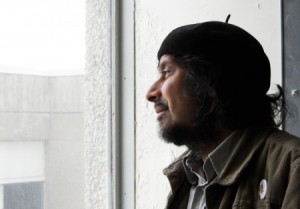
Improvisation lies at the heart of jazz. Improv in musical practice and as a social exercise is the theme of this year’s Guelph Jazz Festival Colloquium – Improvise Here! Profiles in Practice. The University of Guelph will host the annual colloquium Sept. 14-18, coinciding with the 23rd edition of the award-winning Guelph Jazz Festival (GJF).
“The colloquium fosters a spirit of collaborative, boundary-defying inquiry and dialogue, and an international exchange of cultural forms and knowledges,” says U of G English professor Ajay Heble, the festival’s founder and artistic director.
This year’s colloquium will feature panel discussions, debates and performances. Researchers, artists and audience members will discuss learning through jazz and improvisation, and how arts-based improvisatory practices can suggest new ways of thinking about research.
The colloquium lineup will include an interview with Kid Koala, 2016 improviser-in-residence on campus.
Pianist Myra Melford will discuss her work Language of Dreams, a mixed-media composition for improvisers created in response to Eduardo Galeano’s Memory of Fire trilogy.
Concordia University PhD student Navid Navab, originally from Guelph, will showcase his multi-sensory work Practices of Every Day Life: Cooking.
“Navid describes it as ‘a synesthetic performance organized around a chef, an enchanted kitchenette and sonified ingredients,’” Heble says of the project, which was a finalist for the FETA Prize in Sound Art.
Heble will step down this year as the event’s artistic director in order to focus on other projects, including U of G’s International Institute for Critical Studies in Improvisation.
“It’s an emotional time,” he said. “The festival has been a genuinely inspiring and life-changing experience for me, and it has been amazing to be at the heart of such a wonderful community-based initiative that I know has touched so many people around the world in so many ways over the past 23 years.
“I continue to hear from artists and from audience members around the world about how important the festival has been for them, and about the tremendous impact that my work has had on so many communities.”
Colloquium events are free and open to the public.